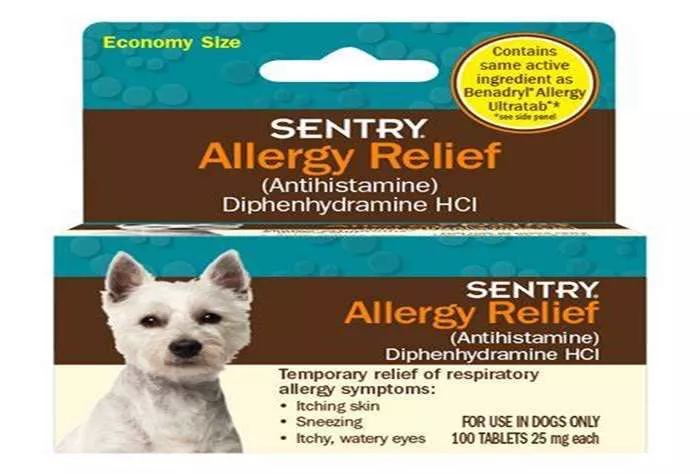If you love dogs but suffer from allergies, you’re not alone. Millions of people experience sneezing, itchy eyes, and congestion when around dogs. The good news is that there are many effective treatments available.
What Causes Dog Allergies?
Dog allergies happen when your immune system reacts to proteins found in:
- Dander(dead skin flakes)
- Saliva(from licking or drooling)
Urine
The main allergens are proteins called Can f 1 and Can f 2, which stick to fur, clothes, and furniture. When you breathe in or touch these allergens, your body releases histamines, causing symptoms like:
- Sneezing
- Runny or stuffy nose
- Itchy, red eyes
- Skin rashes or hives
- Coughing or wheezing (in severe cases)
Some people have mild reactions, while others experience severe symptoms. The right allergy medicine can make a big difference.
5 Types of Dog Allergy Medicines
There are several types of medications to treat dog allergies:
Antihistamines
Block histamine, reducing sneezing, itching, and runny nose
Available as pills, liquids, nasal sprays, and eye drops.
Decongestants
Shrink swollen nasal passages for easier breathing.
Often combined with antihistamines.
Corticosteroids (Steroids)
Reduce inflammation in the nose, lungs, or skin.
Available as nasal sprays, inhalers, creams, or pills.
Leukotriene Inhibitors
Block chemicals that cause swelling and mucus production.
Often used for asthma-related allergies.
Allergy Shots (Immunotherapy)
Long-term treatment that helps your body get used to allergens.
Requires regular visits to an allergist.
16 Best Over-the-Counter (OTC) Dog Allergy Medicines
OTC medicines are easy to find and work well for mild to moderate allergies.
Oral Antihistamines
These are the most common OTC options:
Cetirizine (Zyrtec)
Works for 24 hours.
Good for sneezing, itching, and runny nose.
May cause drowsiness in some people.
Loratadine (Claritin)
Non-drowsy for most people.
Effective for nasal and eye symptoms.
Fexofenadine (Allegra)
Fast-acting and long-lasting.
Less likely to cause drowsiness.
Diphenhydramine (Benadryl)
Works quickly but lasts only 4-6 hours.
Causes drowsiness (good for nighttime relief).
Nasal Sprays
Fluticasone (Flonase)
A steroid spray that reduces nasal inflammation.
Takes a few days to work but lasts 24 hours.
Azelastine (Astelin)
An antihistamine spray for fast relief.
Can cause drowsiness or a bitter taste.
Eye Drops
Ketotifen (Zaditor, Alaway)
Relieves itchy, watery eyes for up to 12 hours.
Works quickly and is non-drowsy.
Naphazoline/Pheniramine (Visine-A, Opcon-A)
Reduces redness and itching.
Should not be used for more than 3 days in a row.
Decongestants
Pseudoephedrine (Sudafed)
Shrinks nasal passages (requires ID to purchase).
Can raise blood pressure.
Phenylephrine (Sudafed PE)
Weaker than pseudoephedrine but easier to buy.
Best Prescription Dog Allergy Medicines
If OTC options don’t work, a doctor may prescribe stronger treatments.
Prescription Antihistamines
Desloratadine (Clarinex)
Stronger than Claritin, lasts 24 hours.
Levocetirizine (Xyzal)
More potent than Zyrtec, good for nighttime itching.
Prescription Nasal Sprays
Mometasone (Nasonex)
A steroid spray for severe nasal allergies.
Triamcinolone (Nasacort)
Another strong steroid option.
Leukotriene Inhibitors
Montelukast (Singulair)
Helps with both allergies and asthma.
Rare side effects include mood changes.
Allergy Shots (Immunotherapy)
How it works: Small doses of dog allergen are injected over time to build tolerance.
Duration: 3-5 years of treatment.
Effectiveness: Up to 85% success rate for long-term relief.
Natural and Alternative Remedies
Some people prefer natural options. While not as strong as medications, these may help:
Saline Nasal Rinse
Flushes out allergens (use a neti pot or saline spray).
Butterbur Extract
A plant-based antihistamine (avoid if allergic to ragweed).
Quercetin
A natural antioxidant that may reduce histamine release.
Probiotics
May improve immune response to allergens.
HEPA Air Filters
Removes dog dander from the air.
Note: Always check with a doctor before trying supplements.
How to Choose the Best Dog Allergy Medicine
The best choice depends on:
- Your symptoms (nasal, eye, skin, or breathing issues).
- Severity(mild, moderate, or severe).
- Side effects(drowsiness, dry mouth, etc.).
- Cost and convenience(daily pills vs. sprays).
Conclusion
The best dog allergy medicine depends on your symptoms and lifestyle. OTC antihistamines like Zyrtec and Claritin work well for many people. If symptoms persist, prescription sprays or allergy shots may be needed. Combining medicine with home strategies (like air filters and regular cleaning) can make life with a dog much easier.
If allergies are severe, consult an allergist for personalized treatment. With the right approach, you can enjoy your furry friend without constant sneezing and itching!
Relative topics:
Food Allergy: Home Remedy or Emergency Room?
Iodine Allergy: Myths, Symptoms, Causes & Treatment
7 Key Signs Your Cold Is Getting Better

